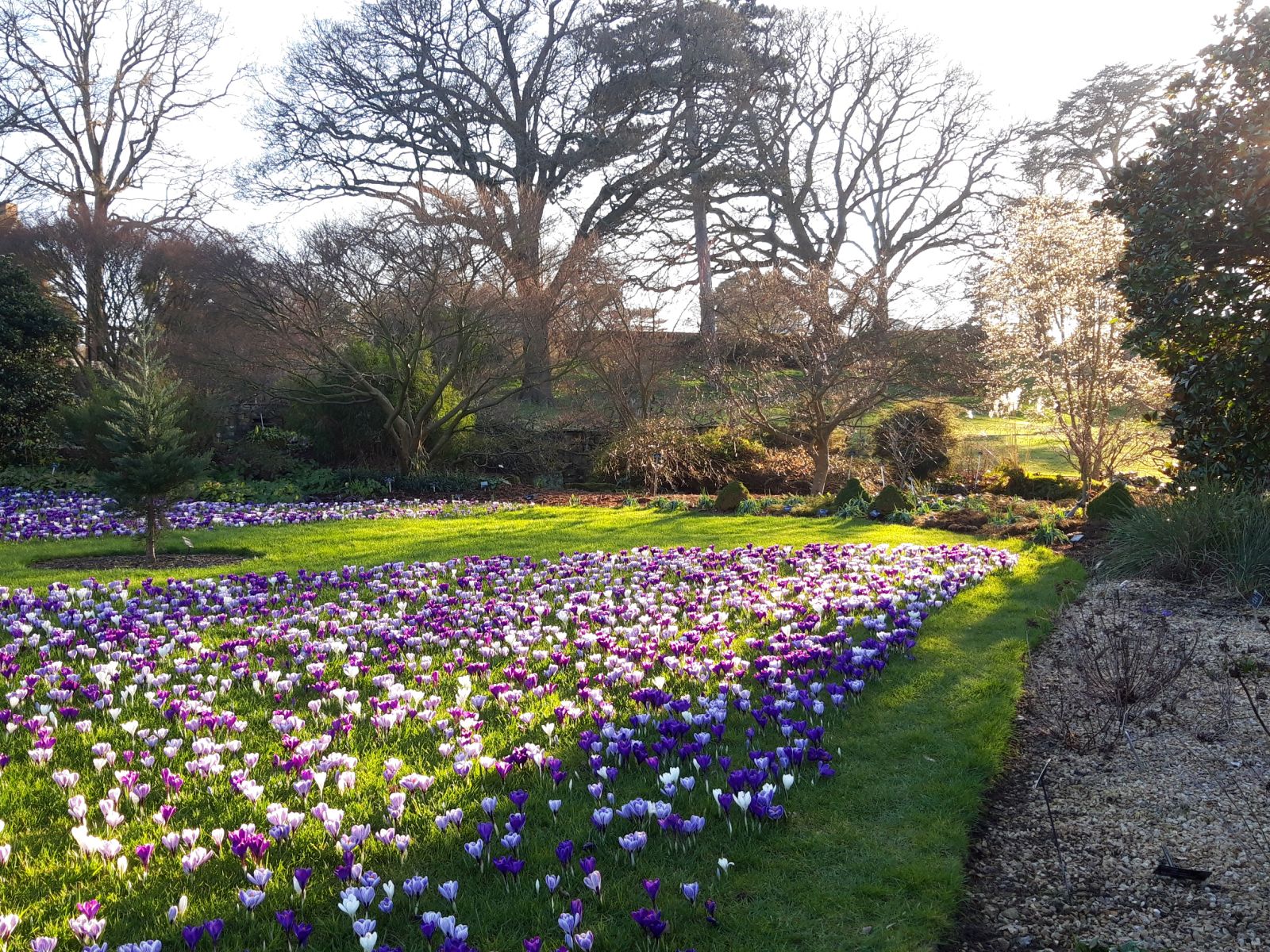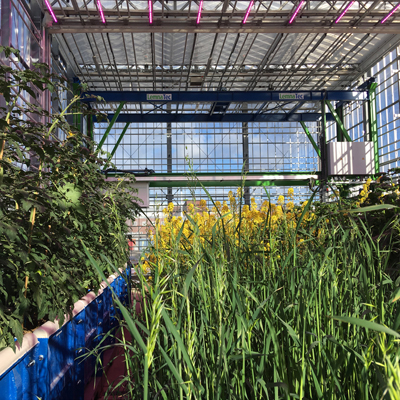Cranfield has a long history of working with businesses and organisations to support improvements in soil and water management. But these have typically been for the high-value commodity crop sectors where rising production costs and concerns regarding environmental regulation and sustainability have often been the key ‘drivers for change’.
Now that expertise is being translated and directed towards another high-value sector – UK ornamental horticulture including landscape and amenity. Colleagues within Cranfield’s Water Science Institute and Soil and Agrifood Institute are working together to provide strategic scientific and technical support to the Royal Horticultural Society (RHS).
The RHS was founded in 1804 and has a mission to be the world’s leading gardening charity inspiring passion and excellence in the science, art and practice of horticulture. They provide advice to 489,000 members and host 2.5 million visitors to their gardens and shows each year. Their knowledge is accessed on-line by some 30 million amateur and professional gardeners each year.
Researchers at Cranfield are providing much needed scientific support in two critically important areas for the RHS.
The first is in improving soil biology derived ecosystem services through organic material applications. UK gardeners are keen to grow healthy plants and recognise the need to maintain good quality healthy soils. They often apply organic materials from composting locally sourced materials to add plant beneficial nutrients and improve soil structure. Once they have identified a material that works they tend to re-apply the same material year on year. However, there is paucity of information regarding the impacts of such practices for ornamental horticulture on soil biology, or the implications on ecosystem services. Benefits may include improved carbon storage and climate control, improved nutrient cycling to support plant growth as a habitat for soil organisms (biodiversity) and flood prevention through increased pore space and earthworm activity. Thus, the biology in garden soils may provide an important but as yet undefined role in environmental protection and the delivery of ecosystem services.
This fundamental research is being led by Dr Mark Pawlett from Cranfield Soil and Agrifood Institute, supervising PhD student Rachel Hasler.
The other project is a Knowledge Transfer Partnership (KTP) which aims to research and develop a suite of innovative, cost-effective and impactful water management technologies for use in both commercial horticulture and public and private gardens. This work is also based at RHS Wisley with the intention that it will support transformative change across other RHS gardens in terms of water management as well as leading to behavioural change among its amateur and professional gardeners. The project will also be evaluating various water saving technologies and demonstrating how attitudinal changes to water including valuing its scarcity and cost can not only help reduce the environmental impact of garden water abstractions during dry summers but can also lead to much improved visual quality of flowers and higher yields of horticultural produce.
This KTP is being led by Professor Jerry Knox with Professor Ian Holman supervising an Associate (Janet Manning) who also based at RHS Wisley.
Reflecting on the new relationship with the RHS, Professor Jerry Knox comments “Whilst scientists have long recognised the inextricable links and need to consider soil and water management as part of a broader integrated system, it is refreshing to be working with a progressive organisation such as the RHS which have clearly recognised the strategic priority to address their soil and water-related challenges from a holistic perspective.”





